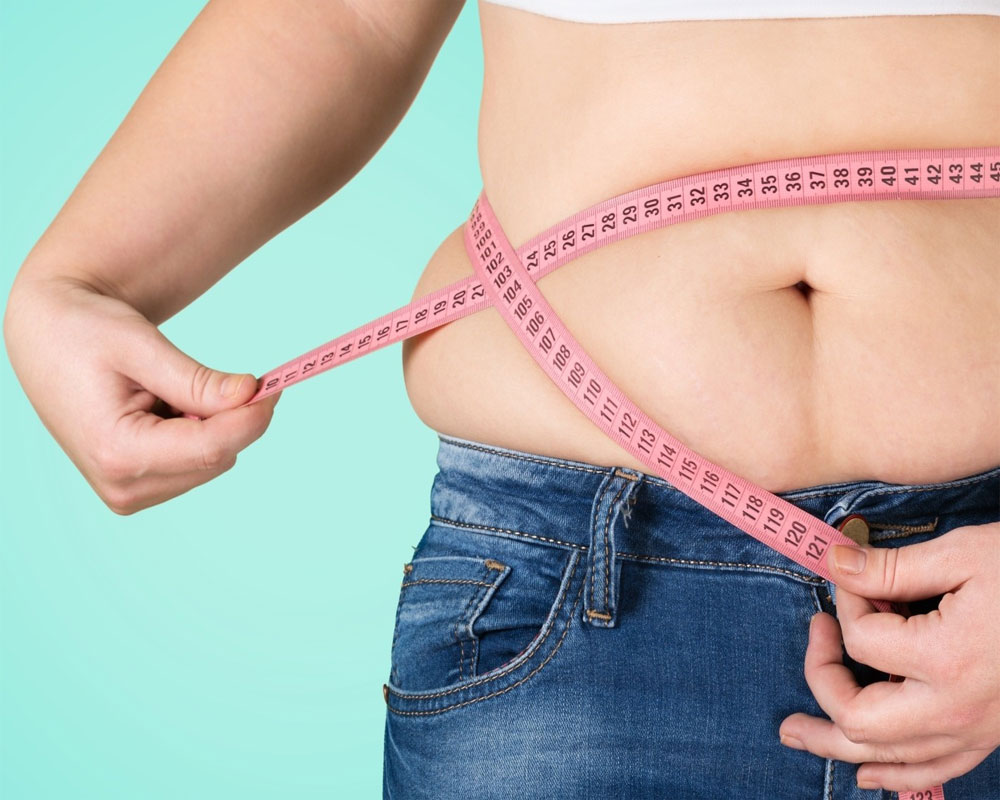Obesity
The main factors influencing obesity are poor diet and inadequate physical activity. Increased energy intake from the diet without an increase in energy expenditure through physical activity will result in energy storage as fat and weight gain.
When a person consumes more calories than they use as energy, their body will store the extra calories as fat. This can lead to excess weight and obesity.
Why obesity happens?
1- Consuming too many calories
Foods that tend to increase the risk of weight gain include:
• fried foods, such as French fries
• fast foods
• many dairy products
• foods with added sugar, such as baked goods, ready-made breakfast cereals, and cookies
• foods containing hidden sugars, such as ketchup and many other canned and packaged food items
• sweetened juices and sodas drinks
• processed, high-carb foods, such as bread and bagels
Eating too much of these foods, especially those that are high in sugars and doing too little exercise can result in weight gain and obesity.
2- Lifestyle
3- Not sleeping enough
4- Endocrine disruptors
5- Medications Some medications can also lead to weight gain.
6- Obesity gene
Obesity can be measured in a number of ways, including the commonly used body mass index (BMI). BMI is an internationally recognized measure of obesity at a population level for both adults and children.
Body mass index BMI is a tool that doctors use to assess if a person is at an appropriate weight for their age, sex, and height. The measurement combines height and weight.
A BMI between 25 and 29.9 indicates that a person is carrying excess weight. A BMI of 30 or over suggests that a person may have obesity.
Body Mass Index Chart
| BMI | Weight Status |
| Below 18.5 | Underweight |
| 18.5 – 24.9 | Normal |
| 25.0 – 29.9 | Overweight |
| 30 or greater | Obese |
Frequent Symptoms
Although gaining a few extra pounds may seem insignificant as far as a person’s overall health is concerned, weight gain can quickly escalate to a serious medical condition
Frequent Symptoms for Adults
• Excess body fat accumulation (particularly around the waist)
• Shortness of breath
• Sweating (more than usual)
• Snoring
• Trouble sleeping
• Skin problems (from moisture accumulating in the folds of skin)
• Inability to perform simple physical tasks (that one could easily perform before weight gain)
• Fatigue (from mild to extreme)
• Pain (commonly in the back and joints)
• Psychological impact (negative self-esteem, depression, shame, social isolation)
Frequent Symptoms for Children and Adolescents
• Eating disorders
• Fatty tissue deposits
• The appearance of stretch marks on the hips and back
• dark velvety skin around the neck and other areas (Acanthosis Nigricans)
• Shortness of breath with physical activity
• Sleep apnea
• Constipation
• GI reflux
• Poor self-esteem
• Early puberty in girls/delayed puberty in boys
• Orthopedic problems (such as flat feet or dislocated hips)
Consequences and Health Risks
Obesity is a concern because of its implications for the health of an individual as it increases the risk of many diseases and health conditions including: –
• Coronary heart disease
• Type 2 diabetes
• Cancers (endometrial, breast, and colon)
• Hypertension
• Dyslipidemia (for example, high total cholesterol or high levels of triglycerides)
• Stroke
• Liver and Gallbladder disease
• Sleep apnea and respiratory problems
• Osteoarthritis (a degeneration of cartilage and its underlying bone within a joint)
• and Gynecological problems (abnormal menses, infertility).
Treatment for Overweight & Obesity
Healthy eating plan and regular physical activity
Changing your habits
Weight-management programs
Weight-loss medicines
your doctor may prescribe medicines to treat overweight and obesity.
herbal remedies and dietary supplements can help.
Weight-loss devices
Weight-loss devices include:
– Electrical stimulation system.
– Gastric balloon system.
– Gastric emptying system
Bariatric surgery
making changes to your digestive system
– Roux-en-Y
– Biliopancreatic diversion with duodenal switch
– Laparoscopic adjustable gastric banding (LAGB)
– Sleeve gastrectomy.
Special diets

